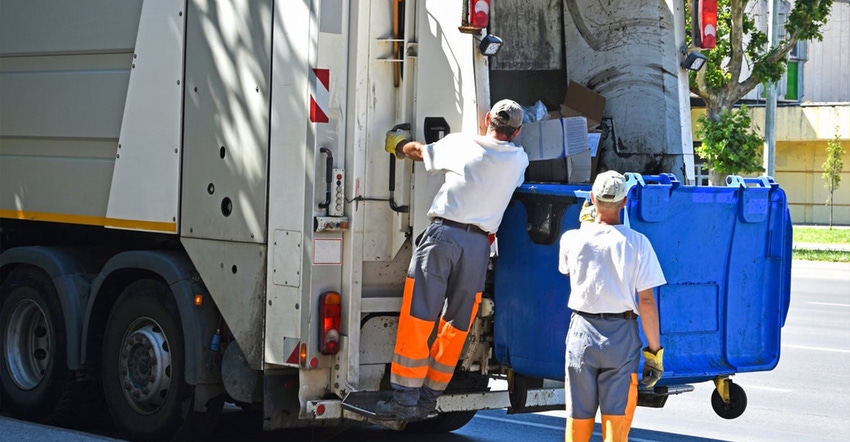Waste Collection Trucks Become a Flexible Energy Source to Boost Energy Security
January 12, 2024

At its “Deep Dive Energy” event in London, Veolia unveiled a world-first vehicle-to-grid (V2G) innovation that will enable waste collection trucks to power UK homes by feeding back stored energy from their batteries to the grid.
UK’s largest waste collection fleet operator, Veolia plans to electrify all of its 1,800 RCV’s in the country by 2040. This transformation will enable the company to provide to the grid around 200 MW of flexible power capacity daily, an equivalent of the evening peak energy demand of over 150,000 homes, supporting the country's energy security.
With electricity demand in the UK expected to double by 2050 and Government’s targets to decarbonise the National Grid by 2035, batteries have a role to play as they can not only recharge from the electrical grid, but they can also feed back stored energy from their batteries to the grid thanks to V2G. This can provide energy during peak demand periods, contribute to grid stability by regulating frequency and voltage, and even store excess renewable energy for later use.
Veolia has taken the potential of this technology to a new level by applying it to collection vehicles, which are ideally suited to V2G as their batteries are six times larger than those in an average car, and the fleet is usually parked at peak energy consumption times for the National Grid.
The first phase of the trial performed by Veolia has been successfully completed, enabling 110 KW of energy to be charged and discharged from two specially designed bi-directional vehicles, enough to supply power to 110 households for over two hours during peak evening hours. Veolia now plans to expand the trial and test it out on the streets, using Westminster council collection vehicles to pilot the innovation.
In addition, Veolia will maximize the use of local decarbonizing energy from its waste-to-energy plants to power its vehicles, creating a perfect circular loop. This will include the Landmann Way vehicle depot in North London, powered by low-carbon electricity from the SELCHP plant.
Estelle Brachlianoff, CEO of Veolia, said: "We need to innovate in local decarbonizing energy and transform our traditional approaches to take advantage of untapped sources. This requires a change of mindset and a collective willingness to rethink the way we produce, distribute and consume energy. The success of the V2G demonstration illustrates this perfectly. By enabling electric vehicles to become active players in the power grid, we are harnessing their potential to balance energy supply and demand, reduce carbon emissions and promote renewable energy".
Gavin Graveson, Senior Executive Vice President Veolia Northern Europe Zone said: “Flexibility is the key to super-charging the UK’s energy security and the transition to a smarter and more sustainable market. We have to adapt to increasing energy demand and adopt smarter energy systems to bring resilient, dependable and low carbon energy to our homes and businesses. Flexibility innovations like this one have the potential to revolutionise the way we manage our energy usage and represent a huge opportunity to cut costs and carbon”.
For this project Veolia has partnered with electric vehicle charger manufacturer, Turbo Power Systems (TPS), vehicle repower experts Magnetic Systems Technology (Magtec) and EV charge point management software provider Fuuse, with support from technology provider, Advantics.
Veolia has a strong history of innovation in developing local decarbonizing energy solutions for the benefit of local communities and industries. The Group operates 10 Energy Recovery Facilities in the UK. These facilities take around 2.3 million tonnes of non-recyclable waste and transform this into electricity for over 400,000 homes, and this combined generating capacity of 180MWe takes pressure off the stretched UK electrical grid and effectively avoids using fossil fuels for generation. Some of these facilities also produce heating for communities through district heating networks, by using combined heat and power technology.
▁▁▁
ABOUT VEOLIA
Veolia Group aims to become the benchmark company for ecological transformation. Present on five continents with nearly 213,000 employees, the Group designs and deploys useful, practical solutions for the management of water, waste and energy that are contributing to a radical turnaround of the current situation. Through its three complementary activities, Veolia helps to develop access to resources, to preserve available resources and to renew them. In 2022, the Veolia group provided 111 million inhabitants with drinking water and 97 million with sanitation, produced nearly 44 million megawatt hours and recovered 61 million tonnes of waste. Veolia Environnement (Paris Euronext: VIE) achieved consolidated revenue of 42.885 billions euros in 2022.
You May Also Like


